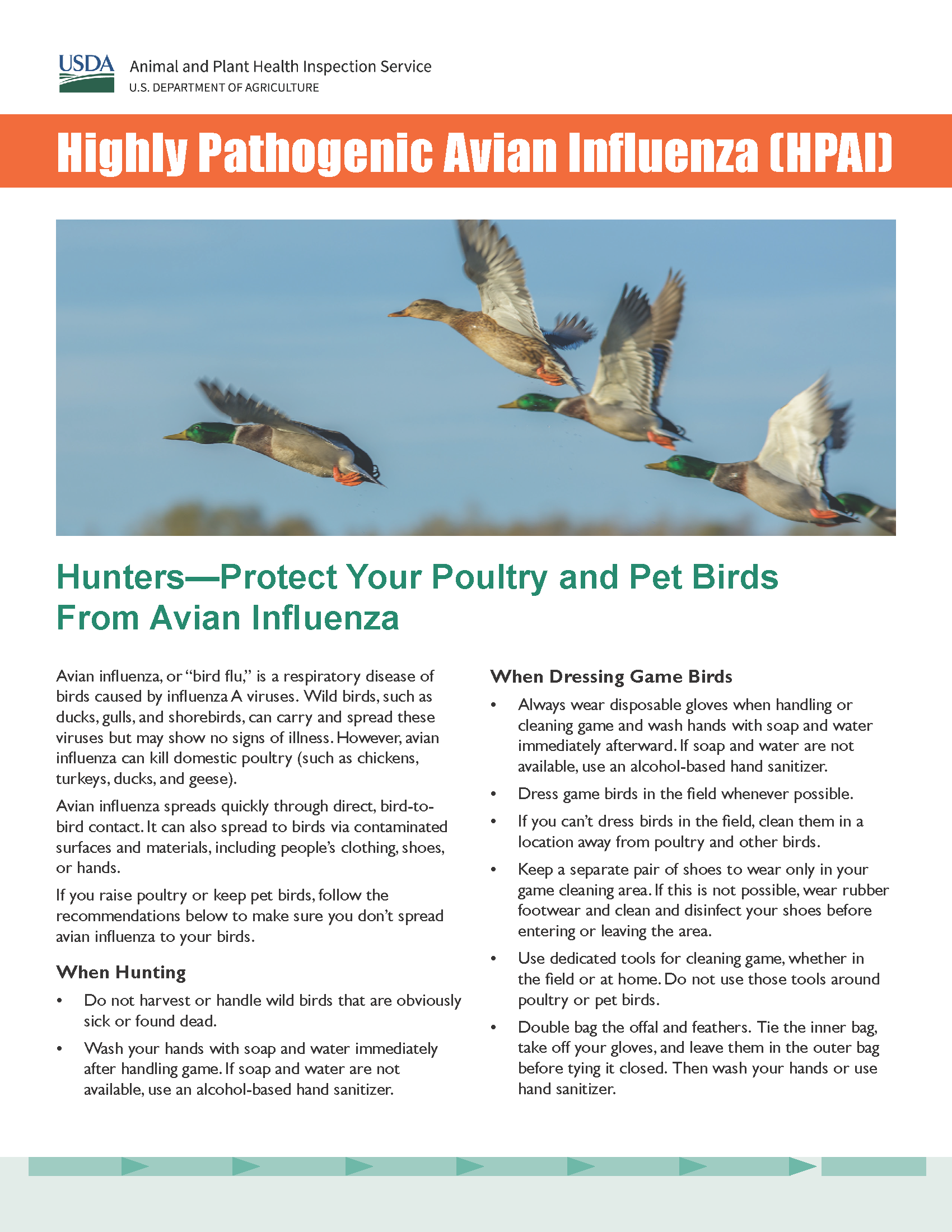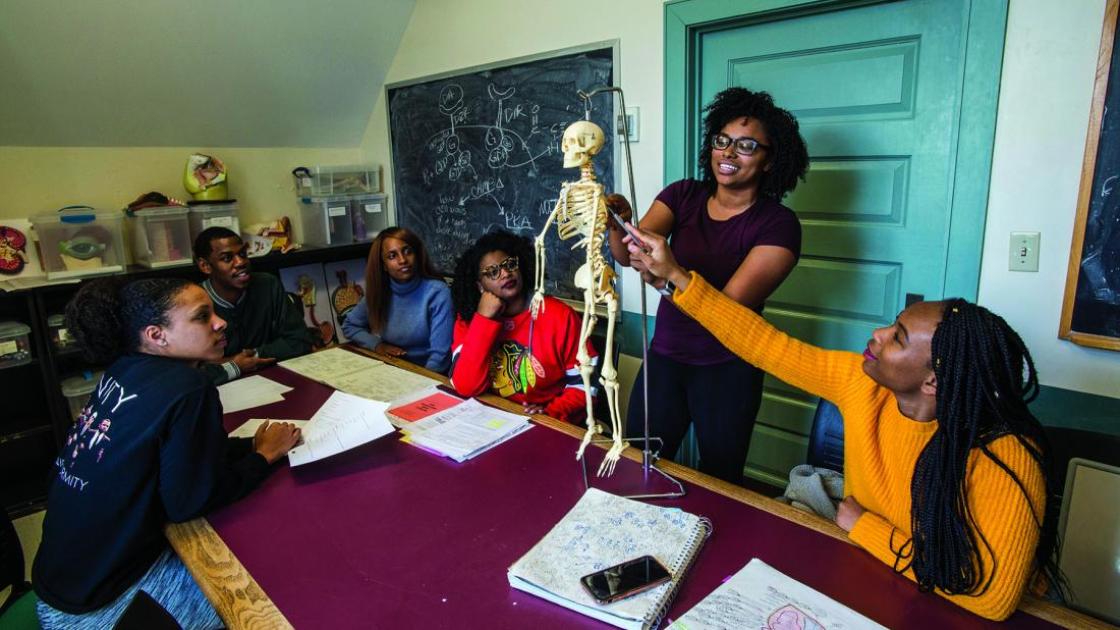
IDPH has issued a bird flu advisory: What hunters need to know

With avian influenza (bird flu) becoming a concern across the United States, it’s important for hunters to understand how to stay safe while handling wild birds. Bird flu is caused by highly pathogenic avian influenza (HPAI) viruses that can infect wild and domestic birds. In rare cases these viruses can spread to humans. Here’s what hunters should know to protect themselves, their families and their communities.
Understanding bird flu
Avian influenza viruses primarily infect birds but they can occasionally infect mammals including humans. Wild waterfowl such as ducks and geese are natural carriers of the virus and can spread it to other bird species. The Centers for Disease Control and Prevention (CDC) and the U.S. Department of Agriculture (USDA) recommend precautions for anyone handling birds or bird carcasses.
Risks for hunters
While human infections with bird flu are rare, hunters who come into close contact with infected birds or contaminated environments may be at a higher risk. Precautions are essential especially when handling waterfowl or game birds during hunting seasons.
Preventing bird flu: key safety tips for hunters
- Avoid handling sick or dead birds
- Do not handle or consume birds that appear sick or are found dead.
- Report sick or dead wild birds to your local wildlife agency.
- Practice good hygiene
- Wear disposable gloves while handling birds.
- Wash your hands thoroughly with soap and water after handling birds even if you wore gloves.
- Cook game meat thoroughly
- Cook all game meat to an internal temperature of at least 165°F (74°C).
- Avoid cross-contamination by using separate utensils and cutting boards for raw meat.
- Clean and disinfect equipment
- Use soap and water to clean knives, tools and surfaces that come into contact with birds.
- Disinfect equipment with a solution of 10% chlorine bleach or other suitable disinfectants.
- Wear protective gear
- Use masks and eye protection when cleaning game birds to reduce the risk of exposure to respiratory droplets.
- Be aware of symptoms
- Monitor your health for flu-like symptoms such as fever, cough or shortness of breath after handling birds. Contact a health care provider if you experience any of these symptoms.
Additional resources for bird flu precautions
CDC guidance for hunters: The CDC provides detailed information about avian influenza risks and prevention for groups like hunters.
USDA fact sheet for hunters: The USDA has a helpful flier summarizing key points for hunter safety. Access it here.
Backyard flock owners: Those who keep backyard poultry should visit the CDC’s avian influenza resource page for tips on keeping birds safe.
OSHA quick card for poultry workers: If you process birds professionally, OSHA offers workplace safety tips. Review their quick card.
By following these precautions, hunters can enjoy their outdoor activities while reducing the risk of exposure to bird flu. Stay informed, prioritize hygiene and handle wild birds responsibly to keep yourself and others safe.



